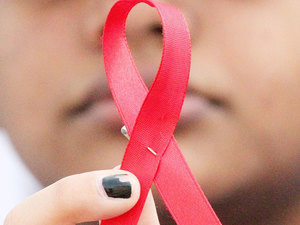If you are worried about telling people that you have HIV, you’re not alone. For many people living with HIV, particularly when they have just been diagnosed, telling other people is one of their main concerns
SHARING OR DISCLOSING YOUR HIV-POSITIVE DIAGNOSIS If you are worried about telling people that you have HIV, you’re not alone. For many people living with HIV, particularly when they have just been diagnosed, telling other people is one of their main concerns.1 2 Sharing the news of your diagnosis (also called disclosure) with your partner, a close friend or family member and talking about your feelings can be really helpful, and your friends and family may be a good source of support. Unfortunately, in many communities, there is stigma attached to HIV, and it may be that some of the people you know do not really understand what it means to have HIV. They may not understand how it is passed on, be afraid, or judgmental. It is up to you to decide who you tell. You may find it helpful to talk to a healthcare professional, or a peer support group, first. Who should I tell? It’s up to you to decide who you tell. You may decide you want to be completely open about your HIV status, or you may decide to only tell a small number of people close to you – it’s your choice. "Besides the doctor, my husband is the only one who knows my status. I'm afraid to tell anyone else because I fear them seeing me different." - Mia You don’t have to decide right away. Take your time to take in the news that you have HIV. Who you tell will also depend on your situation, and the relationships you have with people. Because HIV can be passed on during sex, telling someone who is a current or previous sexual partner can be particularly difficult and emotional. Depending on where you live, there may be some legal issues you have to consider. In some countries, if you know you have HIV, then having sex without disclosing your HIV status first is against the law.3 Talk to your doctor or someone in an HIV organisation about the situation where you live. Often people have concerns about telling their employer, or immigration authorities. Again, this will depend on where you live. For example, in the UK, there are very few jobs which require you to tell your employer if you have HIV – if you are a surgeon for instance – and having HIV does not affect your immigration status.4 Positive and negative reactions It can be helpful to think about what kind of reaction you might expect from someone you are considering telling. Do you think they will be calm and supportive? Are they likely to get upset and worried for you? Is there a chance they could be angry, or even violent? Talking to a healthcare professional, or a support group or organisation, can help you to think about the kind of reaction you are expecting and how you might handle it. In some situations, it might be possible for someone to be with you when you disclose. While it is important to consider the negative reactions that some people sadly do experience, it’s also really important to remember that many people have good experiences of disclosing their HIV status. "My parents have been nothing less than supportive and helpful through this entire time. They bought a ton of books about HIV and informed themselves as much as they possibly could about prevention and nutrition and how to help physically and emotionally. I am forever grateful to have their unwavering support and unconditional love." - Jordan Being able to be open and honest with someone about your HIV status and your feelings can be really powerful. It can make you feel closer to the person, and they may offer you emotional and practical support when you need it. How do I tell people? It’s worth thinking about how you will tell someone. It can help to have some information on hand to share with them. They may not know about how HIV is passed on, or about HIV treatment. They may assume that you don’t have long to live, or that you won’t be able to have relationships or have a family. If you can help them to understand the facts about HIV, they are less likely to react negatively. It’s a good idea to find a time when you are unlikely to be interrupted, and you can take your time, and to talk in a setting where it’s quiet and you can sit comfortably together. Give them time to process what you’re saying, and check they understand. "At first, I didn't want my parents and friends to know what was going on with me. I isolated myself from all my friends and family. I finally found the best opportunity for me to disclose my HIV status to my sister. I am thankful because my sister was able to understand me and I asked her to educate my mom about HIV. After disclosing my status I don't have any burden at all. I don't care if everyone around the world knows that I am living with HIV." - Zion How do I talk to my children about HIV? It can be difficult to decide how much information to give children about HIV. Every child is different, and every parent is different, so there isn’t necessarily a ‘right’ way to tell your child that they, and/or you have HIV. Often, telling a child that they have HIV is done over time, giving them information at the level they can understand, depending on their age.5 Children will often have questions about why they are taking treatment, or why they have to see their doctor, and this can present an opportunity to give information and offer reassurance. Talking to other parents and a healthcare professional at your child’s clinic can help you think about what you might like to do and when. Photo credit: ©iStock.com/lolostock






